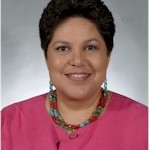By STEVEN R. HURST
Associated Press
WASHINGTON (AP) President Barack Obama won loud, bipartisan applause when he told a joint session of Congress he would withdraw about half the U.S. force from Afghanistan this year, but opposition Republicans were quiet as he outlined an ambitious legislative agenda closing tax loopholes for the wealthy, gun control, attacking climate change that his opponents say they won’t even consider.
Obama hit the road Wednesday to seek further support from the public.
Obama’s hour-long speech Tuesday night, an annual address highly anticipated for signals about his plans for the first year of his second term, held no surprises and made no obvious progress toward narrowing the vast partisan divisions and legislative gridlock that have gripped Washington since Republicans regained control of the House of Representatives in 2010.
The only legislative initiative that drew applause from members of both parties was Obama’s call for immigration reform. Republicans, after losing massively among Hispanic voters in the 2012 presidential race, have embraced the need to deal more humanely with the 11 million immigrants already in the United States illegally.
Obama returned to the themes that won him re-election in November: The need to revive the middle class that has been ravaged by the Great Recession and was already seeing wages stagnate before that deep economic downturn confronted Obama when he took office four years ago. With unemployment still near 8 percent and consumer confidence slipping, the president conceded the nation’s economic revival is an “unfinished task.”
Still, he said: “We have cleared away the rubble of crisis, and we can say with renewed confidence that the state of our union is strong.”
Foreign policy received less attention, but it took on greater urgency after North Korea said it had detonated a nuclear device just hours before the speech. Obama said “provocations” like the test will further isolate North Korea “as we stand by our allies, strengthen our own missile defense and lead the world in taking firm action in response to these threats.”
The chamber erupted with applause when Obama said he was calling home 34,000 American forces from Afghanistan and was on course to remove most of the remainder by the end of 2014, when the U.S. and its allies turn the fighting over to the Afghans. That would bring to an end the longest war in American history.
Obama also announced that the U.S. will begin talks with the European Union on a trans-Atlantic trade agreement, “because trade that is free and fair across the Atlantic supports millions of good-paying American jobs.”
Obama also pledged to work with Russia to seek further reductions in nuclear arsenals. In addition to the European trade talks, Obama said he would work to complete negotiations on the Trans-Pacific Partnership, a trade agreement with the Asia-Pacific region.
He also said the United States “will keep the pressure on a Syrian regime that has murdered its own people, and support opposition leaders that respect the rights of every Syrian.”
This year’s speech came at one of the strongest points in Obama’s presidency. He won re-election by a convincing margin and is generally popular, and opposition Republicans appear weakened and fractured.
But with Republicans controlling the House of Representatives and holding enough votes to stall legislation in the Senate, tough fights loom on the budget and other top issues. Earlier Tuesday, in a meeting with television correspondents and anchors, the most powerful Republican in Congress, House Speaker John Boehner, said immigration is about the only item on Obama’s list that has a chance of passing this year.
“An opportunity to bring together the country instead became another retread of lip service and liberalism,” Senate Republican Leader Mitch McConnell said Wednesday, adding that the president offered little more than “gimmicks and tax hikes.”
In addressing climate change and gun control, Obama waded into territory where he will face resistance.
He implored Congress to at least hold votes on gun control measures, listing a series of high-profile shootings, such as the killings last year of children at a Connecticut school and the shootings at a Colorado movie theater. His remarks drew a standing ovation from Democratic lawmakers and supporters in the gallery in the most animated moment of the night.
On climate change, Obama pledged to work with lawmakers to seek bipartisan solutions, but he said if Congress doesn’t act, he’ll order his Cabinet to seek steps he can take using his presidential powers.
He said major storms, droughts and wildfires that have afflicted the United States can be considered “just a freak coincidence, or we can choose to believe in the overwhelming judgment of science _ and act before it’s too late.”
Obama also urged lawmakers to end a cycle of partisan budget fights that has repeatedly put the United States on the brink of a government shutdown, default or other crises.
Obama addressed relatively briefly the looming fiscal crises confronting the nation _ the deep automatic spending cuts set to take effect March 1, followed by the government running out of money to fund federal agencies on March 27. The president made clear he will continue to press for the rich to pay more in taxes, a position Republicans have rejected.
Obama on Wednesday was kicking off three days of travel to rally support for the economic proposals he unveiled in his address
One of the leading Republican voices for immigration reform, Sen. Marco Rubio, was chosen to deliver the official Republican response Tuesday night. Rubio, a 41-year-old Cuban-American, is one of the party’s brightest stars and a possible 2016 presidential candidate.
Rubio accused Obama of opposing the free-enterprise system. He said Obama’s solution “to virtually every problem we face is for Washington to tax more, borrow more and spend more.”










